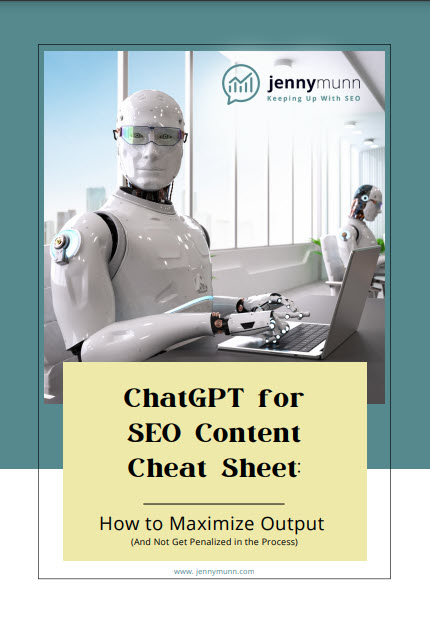Did you know 150% of SEO projects could be improved with better project management? That’s why I’m thrilled to share with you an interview I had recently with Josh Squires.

Josh Squires is an SEO with a background in Copywriting and English Lit. He’s worked as an SEO in-house, as a freelancer, and at marketing agencies for the past 12 years. He’s currently an SEO Strategist at Path Interactive’s Nashville office. Josh is one of the smartest SEOs in my network – connect with him here on LinkedIn. He shares a ton of great tips and info consistently and we often have valuable exchanges in the comments of important SEO topics.
Enjoy the insight Josh has for us around how to more effectively and efficiently wrap your mind around SEO projects and initiatives. Welcome, Josh.
One of the struggles I’ve seen marketers face, is there is so much to do regarding SEO it often leads to paralysis by analysis and overwhelm. How do you keep SEO plans organized so you know exactly what to do next?
Prioritization can be really challenging and, if you’re more of a Content SEO rather than a Technical SEO, it can be hard to judge how to prioritize different SEO tasks and projects.
I like to look at prioritization through 3 lenses: Business Value and Scale of Impact. Let’s say that I have a site where Google has indexed my dev staging site– so there’s effectively a full copy of my domain in the index. So much duplicate content and diluted rankings! Fixing that issue solves a problem that will have a positive impact for the entire site, so I put that as high priority. On the other hand, if I have a site with no site-wide issues, but a single high-value page is optimized for the wrong keyword and I could double the traffic to that page, that’s a very limited scope of impact in that we’re talking about a single page and not the whole site. However, if this page has a high conversion rate which means it generates money for the business, optimizing this page has high business value. We’d be increasing sales and revenue. The final lens is Time to Implement. How long will it take to execute a project or task. This is a great deciding factor for two issues of similar or equal impact, you just do the faster one first.
So you ask yourself:
- Which tasks improve a large portion of the site vs just a page or section?
- Which tasks have a high business value (generate more money, leads, etc.)
- How long will these tasks take to complete?
This will get you 90% of the way there, but to be honest, there will always be a group of tasks that all need to be done “yesterday” and you just have to pick one and start working.
What do you use to document your short-term and long-term action items?
Usually a waterfall chart (typically in Excel) that spans 3-6 months depending on the length of the projects I have on my plate. Then I’ll break monthly tasks out in something like Asana. So my day to day is driven by Asana tasks, but I have 3-6mo road maps to keep track of projects
Do you see SEO success coming from one-time work, or from consistent implementation of repeat activities?
That all depends on the individual websites. A more optimized website tends to benefit from repeat activities like content consolidation, backlink cleanup, etc. A less optimized (or unoptimized) site may see more dramatic returns from a one-time action. With all SEO work you’re likely to hit a plateau at some point. You can still grow from there, but growth will become incremental instead of exponential.
Because SEO takes multiple channels and departments coming together, I often see SEO projects stall and never get through completion. How do you get stuff done? What is your secret to execution? What tips do you have for project managing through to completion when others are involved?
For SEO projects that touch other departments like Paid, Social, In-Store, etc. it’s critical to get alignment across departments and have a project plan for which everyone is held accountable. Get alignment on your goals and position the project as a way to help other departments meet their goals. If everyone gets something out of it, they’re more likely to commit and to stay involved. Alignment and investment from higher-ups like VPs, Directors, etc. goes a long way as well. When everyone’s boss is asking for the latest update on a project, it tends to keep things moving along. That’s where a good executive presentation for your project comes into play. To be a good SEO, I think a large part of it is being able to communicate the value of the proposed work to non-SEOs, because without that communication there’s no buy-in and less accountability which often leads to stalled projects.
What do you think is the most important under-valued tactic?
One tactic very likely won’t hold the same value for two different sites. Every site is different, so the most effective tactic will change based on a given website’s needs.
One of the biggest frustrations I hear is that SEO changes constantly. How do you keep up with all of the changes?
There’s no shortage of great SEO blogs out there. Moz, Path Interactive, AHREFs, are all great sources. But pay attention to peripheral technologies too! Data visualization, development, Google Analytics, and a host of other topic areas can complement your skills as an SEO and help you think about the same problems in new ways. Once you grasp the core concepts of SEO, the amount of reading you have to do diminishes (somewhat).
Connect with sharp SEOs globally and locally. Go to meetups or start your own! Ask questions and give answers when you have them.
Do you have any insight, or opinions, to share about how to win at SEO in 2020?
Covid-19 has changed the game for 2020. For SEOs it’s going to be about keeping up with and predicting changes in searcher intent. We’ve already seen lots of evidence of how Google’s SERPs are changing in response to the new context of people staying home, searching for digital meeting tools, etc. For some brands, it may mean access to an audience they may not have previously had access to. For others, they may be losing their audience. I’d recommend thinking both about next month and 6 months from now simultaneously, assuming that we’ll see context changes yet again between now and then. Black Friday 2020 will be a whole new ballgame.
Jenny Munn
Latest posts by Jenny Munn (see all)
- Four 2024 SEO Planning Tips for World Domination - November 16, 2023
- SEO Planning Tip: Why You Need a CYA Clause - November 3, 2023
- How Long Does SEO Take to Show Results? (Updated for 2023) - August 9, 2023


